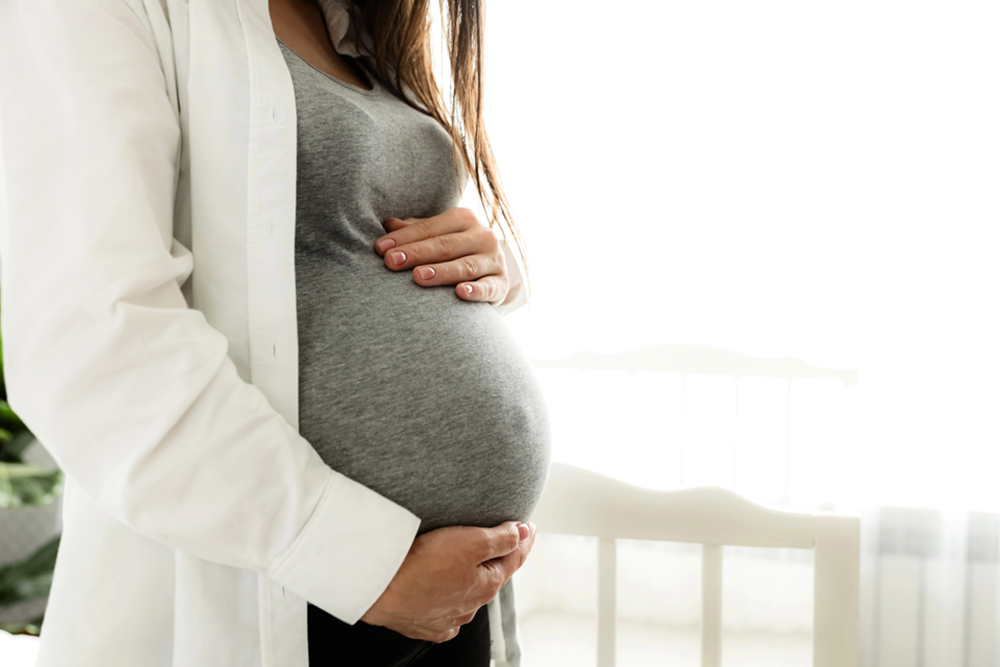COVID-19 Vaccine Effects On Pregnancy
Published on 03/31/21
Pregnancy is undoubtedly one of the most anxious times in a woman’s life. The uncertainty surrounding motherhood can bring daily concerns about potential or lasting harm during pregnancy. This makes the experience even more stressful. When it comes to a conversation about the COVID-19 vaccine effects on pregnancy, there are some things that doctors and researchers know. At the same time, there are some things that they are not sure about just yet.
What Do We Know About the COVID-19 Vaccine Effects on Pregnancy?
For one, we know that the time of pregnancy for a woman is also a time of a lowered immune system. Pregnancy has proven to suppress and alter the immune system, depending on what the best conditions should be for implantation. A suppressed immune system can lead to a higher risk of general sickness.
In addition to knowing what causes the weakened immune state of pregnancy, we also know that women are more susceptible to COVID-19 when they are pregnant. They are also known to be more susceptible to other severe diseases.
We also know that COVID-19 poses serious risks to both the fetus and the pregnancy. In some cases, it can lead to preterm deliveries, pregnancy loss, and even the loss of the mother. While all of these symptoms and effects have been seen in cases of COVID-19, they have simply just not been seen as a result of the vaccine.
Where is the Data on Vaccine Effects During Pregnancy?
One of the main reasons that the data on this matter is difficult to come by is that people who are pregnant or breastfeeding are typically barred from being able to participate in clinical trials. However, there was still another way to gather this data.
The first people who received the COVID-19 vaccine were mainly healthcare providers, like doctors and nurses. This is because they were the ones being exposed to the most COVID-19 cases. They had the most experience with the effects of the disease. Because of that, researchers were able to collect data on the effects of the vaccine. They studied doctors and nurses who were either pregnant or conceiving around the time of receiving the vaccinations.
There’s good news, too! The Center for Disease Control and Prevention’s (CDC) vaccine advisory board released the first set of data on pregnant women who have received the Moderna and the Pfizer vaccine. The study showed no increased risk of fetal malformations, preterm deliveries, miscarriages, or other safety risks to pregnancy.
How Does the COVID-19 Vaccine Impact Pregnancy?
Doctors are most concerned about live virus vaccines for women who are pregnant or trying to conceive. None of the three currently approved vaccine candidates contain live viruses. It means that there is no biological factor or reason that will directly cause issues with pregnancy, like infertility.
The three vaccines that have been currently approved are mRNA vaccines. The vaccines are communicating with your body using the messaging system of RNA to create antibodies. These antibodies are specifically targeted to combat the COVID-19 virus.
Doctors and researchers want patients to understand that the mRNA vaccines for COVID-19 are different from the traditional live vaccines we’ve used in the past. Live vaccines will introduce a non-active or weakened form of a virus, that will trigger your body’s immune response.
Even live vaccinations do not cause the disease to occur. It doesn’t even introduce large quantities of antigens. Instead, it brings the information necessary for your body to produce the antigens that will fight and prevent the virus.
This is rather different from the mRNA vaccines being offered. This new type of vaccine doesn’t necessarily interact with your body’s immune system immediately. It will interact with information that has come from your DNA, not the DNA itself.
Messenger RNA (mRNA) transcribes and copies your DNA, carrying genetic information. As it travels, it can be vulnerable to viruses that may insert their own genetic material to help them grow and spread throughout your body.
In the case of the COVID-19 virus, it uses a spike protein to break into your cells. This spike protein itself is not harmful, which is what the mRNA vaccine utilizes for protection. The vaccine will give the information for your cell to create its own spike protein that it can learn from. It does so to combat the spike proteins that are present in the COVID-19 virus.
The mRNA vaccine will not alter your DNA. It sort of captures an image and then it is destroyed within your cell, often within a few minutes. Your body will use the information to combat the spike proteins that COVID-19 uses to break into your body’s cells to spread virally.
In simple terms, all this means is that the vaccine triggers a controlled and targeted response in your body. This reaction will not interfere with fertility, pregnancy, or any other biological issue because it operates more with your biomolecules.
How Does the Vaccine Affect Breastfeeding?
Researchers and doctors have observed that the vaccinations will not typically pass large quantities of antibodies to the baby through breast milk. In certain cases where this does happen, it actually is a favorable condition.
It stands to reason that if the mother develops antibodies to fight the COVID-19 virus, passing them to the child will boost the child’s immunity. This was a key goal in the design of the mRNA vaccines: to work like previous vaccines by helping the mother’s immunity protect the baby as well.
What Are The Common Vaccine Side Effects?
The side effects experienced by pregnant women who receive the COVID-19 vaccine are similar to those seen in the general population. These include:
- Sore arm at the injection site
- Fatigue
- Headache
- Mild fever
These side effects typically resolve within a few days and are a sign that the body is building immunity.
What Are The Rare Vaccine Side Effects?
Serious side effects from the COVID-19 vaccine are rare, but in some cases, individuals may experience:
- Allergic reactions (anaphylaxis)
- Blood clotting disorders (linked to specific vaccines like Johnson & Johnson)
Pregnant women are advised to consult with their healthcare provider if they have concerns. Their worries could be about rare side effects or pre-existing conditions that may complicate their reaction to the vaccine.
Should You Get the COVID-19 Vaccine During Pregnancy?
Ultimately, the choice is yours. The truth is that the theoretical risks of the vaccine do not outweigh the known risks of COVID-19. There are higher chances of suffering severe consequences, or death from COVID-19 than there are from receiving the vaccine.
Healthcare providers strongly emphasize that there are no biological factors that would directly pose risks to pregnant or breastfeeding women. The support is due mainly to the increased health risks that the COVID-19 virus presents to the mother.
How Can I Learn More About Vaccine Effects on Pregnancy?
If you are still concerned about how the vaccine works, continue to consult with your doctor and professionals in addition to researching more for yourself. This is so that you may be able to communicate with your healthcare provider more clearly.
Feel free to contact Rosh Maternal & Fetal Medicine with any of your questions related to gynecological services you may be seeking. We are also available to address general concerns about your health and wellness.
Rosh Maternal & Fetal Medicine provides a full range of services including family planning, birth control, and annual exams. Our team at Rosh Maternal & Fetal Medicine are experts equipped to deal with high-risk issues and complex care.
To learn more about our services and providers, schedule an appointment so that we can help you overcome what you may be going through. You can even book a video consultation with us here.




